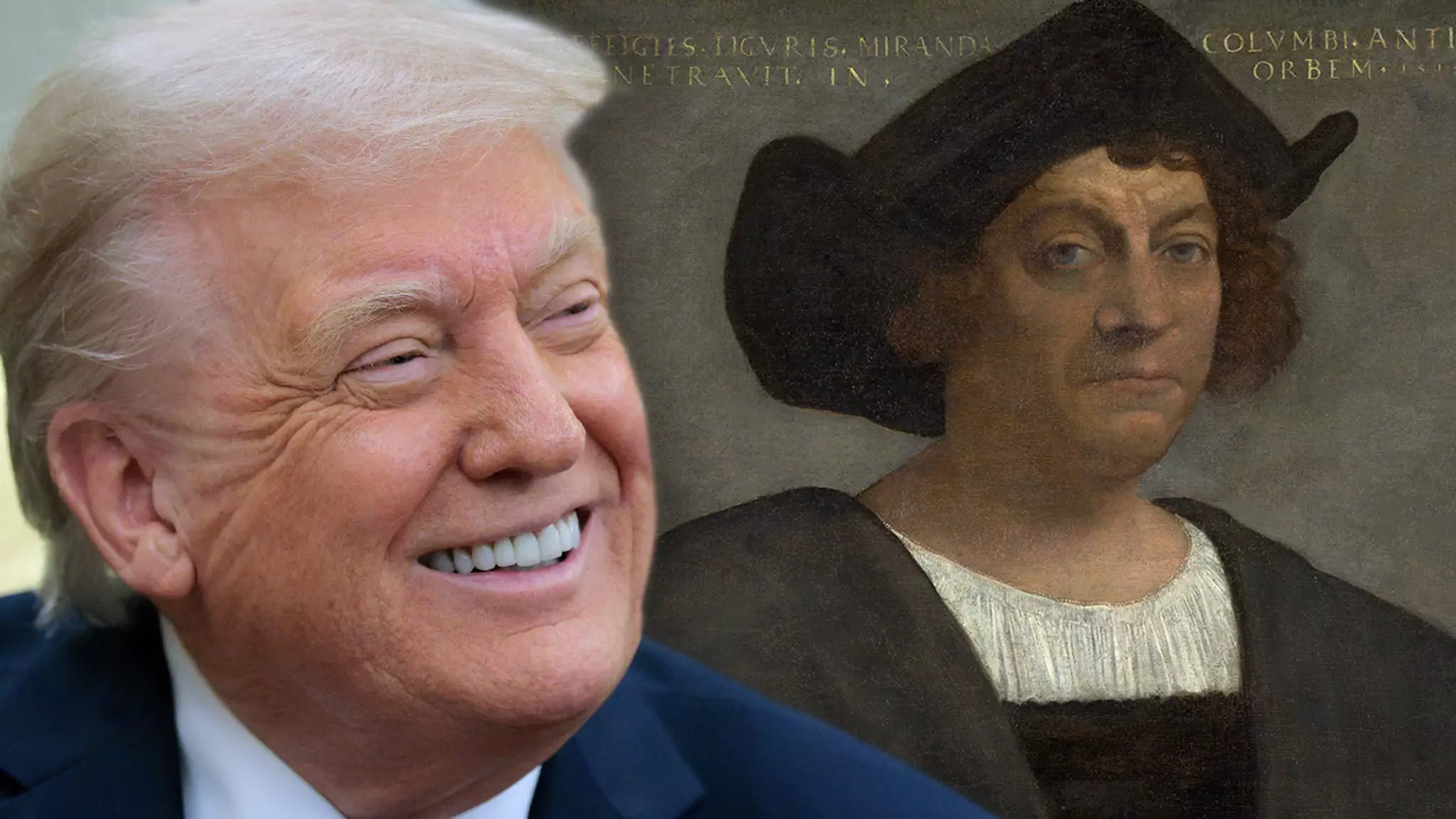In a fervent outcry against what he labels as erroneous historical revisionism, Donald Trump has recently vowed to rehabilitate Christopher Columbus’s tarnished reputation. On his platform, Truth Social, Trump passionately criticized Democrats, asserting that their denouncement of Columbus has not only diminished his legacy but has also impacted the Italian community’s pride. By framing his campaign to restore Columbus Day as a form of cultural retribution, Trump underscores a significant rift in contemporary American political discourse, where historical figures are frequently re-evaluated through modern ethical lenses.
Columbus, a figure of exploration, is heralded by some for his navigational feats while simultaneously condemned by others for actions that led to the suffering of indigenous populations. Trump’s decision to re-establish Columbus Day reflects a broader cultural battle between preserving traditional narratives and recognizing the complex legacies of historical figures. The intention is not merely to revive a holiday; it serves as a declaration of allegiance to those who feel their history is under siege.
Cultural Fanaticism Vs. Historical Accountability
Amid the roar of political rhetoric, it is essential to dissect the reality behind celebrations like Columbus Day. While Trump claims he is “bringing it back from the ashes,” it is crucial to note that Columbus Day remains a federal holiday, albeit one that has seen a decline in observance. Critical perspectives highlight that this push for restoration may not be simply about Columbus himself but rather an indictment of so-called “woke culture” that seeks to reassess historical figures based on their moral complexities.
In a climate where activist movements have led to the removal of statues commemorating Columbus, Trump’s narrative fuels the sentiment of those who oppose what they perceive as an aggressive rewriting of history. He casts the removal as an attack on Italian Americans—a community that views Columbus as a symbol of their heritage. However, this defense raises more profound questions about whose narrative is centered in American history and who decides which figures deserve celebration versus condemnation.
The Implications of ‘Americana’ in Modern Society
The rebranding of Columbus Day as a triumph over historical erasure suggests a nostalgia for a simplified version of history. By invoking patriotic sentiments, Trump aims to galvanize support from those who feel disenchanted by contemporary movements advocating for social justice. The contrasting narratives surrounding Columbus serve as a litmus test for societal values: are we willing to honor the complexities of our history, or will we choose to uphold a singular viewpoint that aligns more comfortably with the past?
This conflict also reflects a more extensive societal struggle to reconcile the aspirations of a nation built on freedom with the legacies of oppression that shadows it. As we approach the next Columbus Day, it will be worth observing how this renewed fervor impacts public sentiment and whether it truly resonates with the average American—or if it merely echoes the voices of a specific faction seeking validation.
Trump’s attempt to restore Columbus Day under the same conditions as previous decades implies more than just the revival of a holiday. It signifies a strategic maneuver in the ongoing cultural war, positioning him as a defender of historical legacy against the tides of change that challenge traditional narratives. In a nation continually striving for balance between honoring its diverse heritage and reconciling its historical misdeeds, the future of Columbus Day looms as a contentious marker of identity in America.

